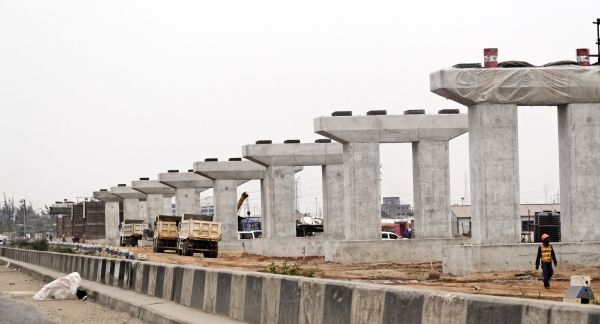The Lagos Blue Line rail project, which is running considerably behind schedule, has received a boost after Britain's deputy high commissioner for Nigeria Peter Carter said the scheme provided many opportunities for British investment.
The 27-km line is being built by the China Civil Engineering Construction Company (CCECC) while the British government’s department for international development is funding the technical expertise. Carter said he would be encouraging British companies to "look seriously at this project and the opportunities more widely in the city of Lagos."
The multi-billion naira line will have 13 stations, with a total journey time of approximately 35 minutes. The Blue Line will form the backbone of the city's major new railway system which is designed to reduce road congestion, particularly on the Lagos-Badagry corridor, and transport more than 400,000 passengers daily. The light rail project includes seven lines, mainly running east-west across Lagos, and all named after colours: Red, Blue, Green, Yellow, Purple, Brown and Orange lines.
It will be built and run in a public–private partnership, with public sector funds building the light rail line and private companies funding the railway and its maintenance once completed. The first line under construction is the Blue line, running from the National Theatre to the western Okokomaiko suburb. Earlier this year Lagos governor Babatunde Fashola said that its first phase, covering Marina, Iganmu and Mile 2 from Mile Two, would be completed by June 2013.
Originally scheduled for completion by the end of 2011, the project was postponed by a year but has recently been postponed again to 2015 due to "funding issues", according to the state government. With a population of over 20 million, and growing rapidly, Lagos has made concerted efforts in recent years to tackle its traffic congestion which costs the city dearly in terms of lost production.
In 2008 the Lagos Area Metropolitan Transport Authority (LAMATA) introduced a rapid bus network which now carries 200,000 passengers per day, however this is nowhere near adequate. The service is supplemented by a large fleet of minibuses, known locally as danfos, which are designed to carry 10 to 15 passengers but often carry twice that amount.














